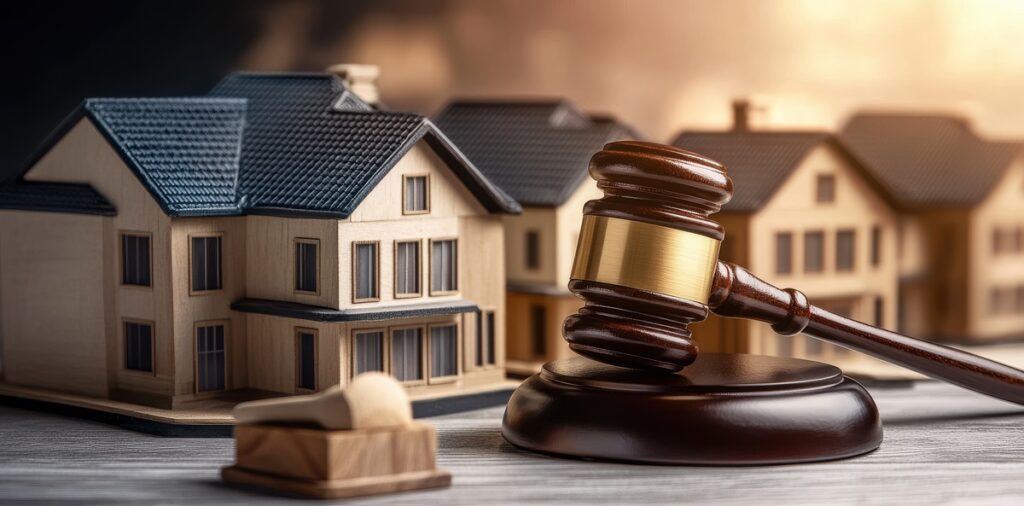The Five Star Institute’s Legal League has announced the launch of its latest White Paper, Non-Uniform Foreclosures.
Legal League is a professional association of financial services law firms spread out across the U.S. The Legal League is uniquely positioned to drive progress in the mortgage servicing industry. Legal League members provide a clear view of the legal landscape and the expertise to navigate it, committed to supporting its membership through education, communication, relationship development, and advisory services.
Non-Uniform Foreclosures was inspired by a discussion on the rise in reverse mortgages being referred to foreclosure, as well as the processes for completing a foreclosure on tribal lands. Prepared by the Legal League Special Initiatives Working Group (SIWG), Non-Uniform Foreclosures was written by Jennifer Rogers Esq., Managing Attorney with IDEA Law Group LLC, and Chair of Legal League’s SIWG; Michelle Garcia Gilbert Esq., Managing Partner with Gilbert Garcia Group PA and Member of the SIWG; Stephen M. Hladik Esq., Partner with Hladik, Onorato & Federman LLP, Member of the SIWG and Chairman of Legal League; and J. Anthony Van Ness Esq., Founder and Managing Attorney with Van Ness Law Firm PLC, and SIWG Member.
MortgagePoint had a chance to sit down and discuss the White Paper with Rogers, a veteran of the industry with 17-plus years of experience, primarily focused on representing mortgage lenders and services in real estate law, title curative matters, routine and complex civil litigation, bankruptcy, creditor’s rights, residential and commercial foreclosures, and evictions. Additionally, Rogers has managed attorneys and staff in a law firm providing comprehensive default services to the mortgage default industry. Rogers has been a frequent speaker at mortgage default conferences addressing issues related to litigation, foreclosure, evictions, and creditor’s rights. Rogers is a founding member of the Colorado Creditor’s Bar Association, and is licensed to practice law in Colorado.
Q: What prompted the need to write this white paper? Were there particular trends, challenges, or legislative changes in foreclosure law that inspired it?
Jennifer Rogers: Non-Uniform Foreclosures came about when the members of the Special Interest Working Group were discussing the increase in reverse mortgages being referred to foreclosure and the unique processes for completing a foreclosure on tribal land. From there, we thought it might be interesting to summarize the different types of foreclosure actions we deal with regularly. From that point it was a matter of trying to narrow down which of the non-uniform foreclosures impacted the most professionals in our industry.
Q: Would you summarize some of the high-level takeaways from this white paper?
Jennifer Rogers: The most important takeaway is realizing that foreclosures go beyond just judicial and non-judicial actions. The processes vary depending on the type of foreclosure and the state involved. As an industry, we are seeing a larger aging population which has resulted in more reverse mortgage foreclosures and COVID changed the way business work, which has resulted in lower office space demand, which, in turn, has resulted in more commercial foreclosures. Each of the foreclosure types we focused on has different processes and nuances to complete the foreclosure and transfer title. Understanding the differences is important to ensure that we are compliant with the rules and regulations associated with each so that we do not waste our client’s time or money.
Q: Which segments of our industry will be most served by reading this white paper? What do you hope they will take away from it?
Jennifer Rogers: I think anyone involved in our industry would benefit from reading the paper and using it as a reference when you run into these types of foreclosures. While it is not a step-by-step description of the process, it does provide enough information to get you an understanding of how it is different than a traditional foreclosure on a residential property. Most importantly, if you run into any of these non-uniform foreclosures and you have questions, the authors of the White Paper are available to provide direction on how to proceed.
Q: Are there other Legal League publications or training you would recommend readers to check out in addition to this White Paper?
Jennifer Rogers: Sure … the Legal League has produced many White Papers, including National Disaster Assistance: Resources for Homeowners and the Impact With Mortgage Default, The Homeowner Assistance Fund: The Current Status of the HAF Program in Selected Jurisdictions, and The Fair Debt Collection Practices Act (Regulation F) are just a few of the most recent White Papers. All of these and more can be found on the Legal League website.





